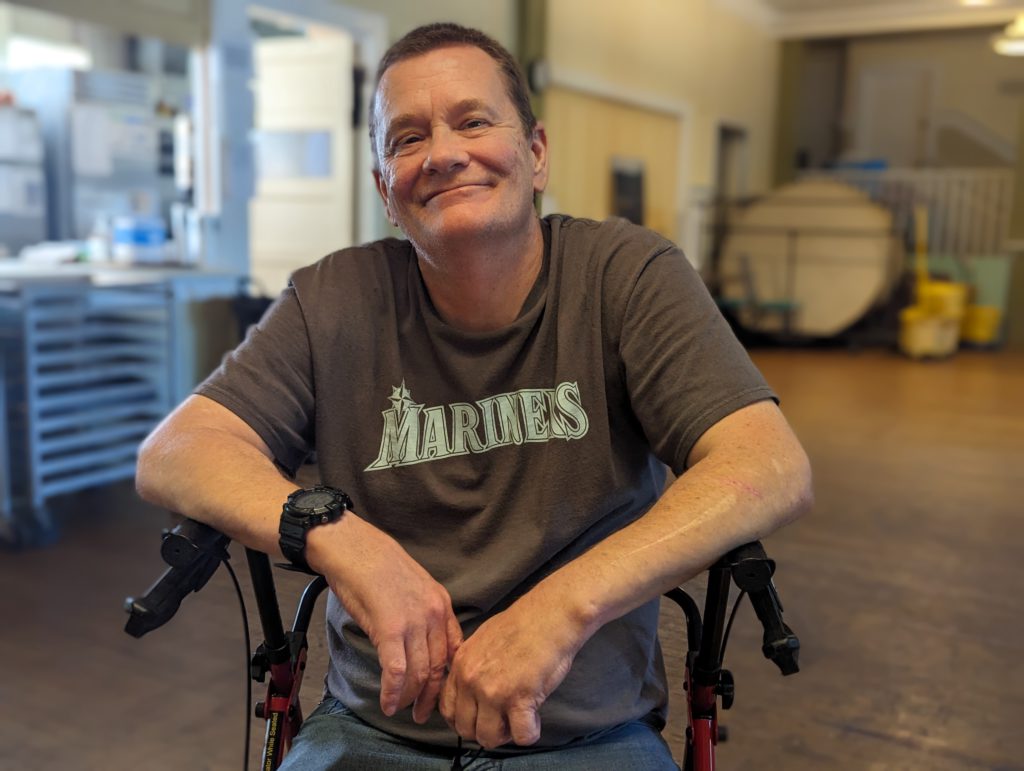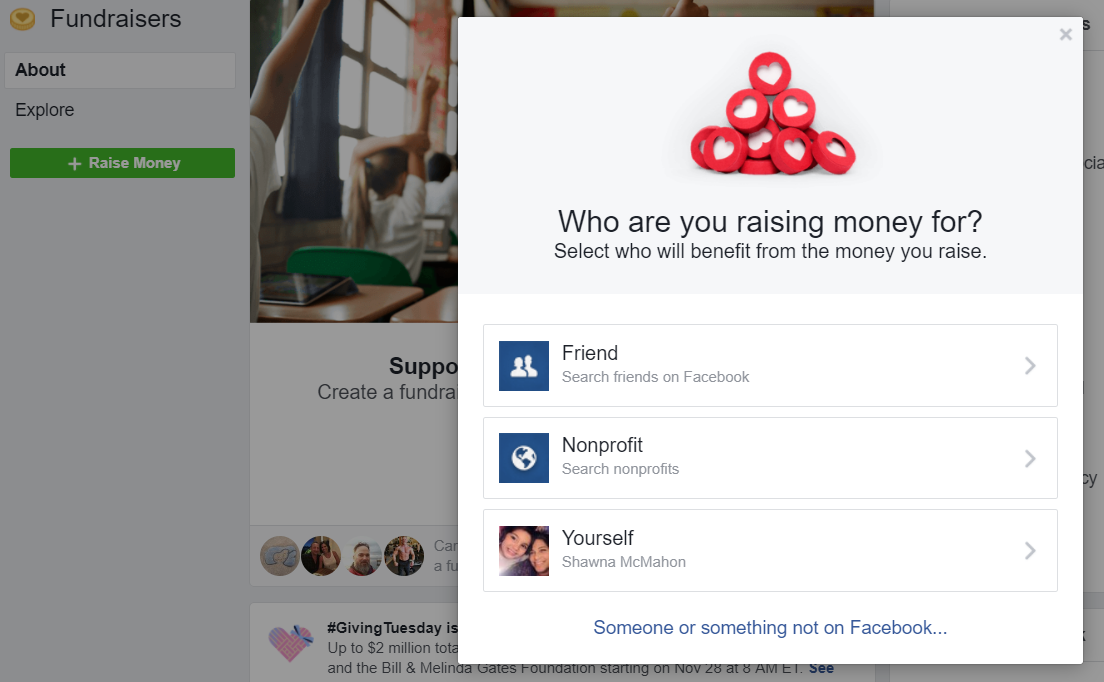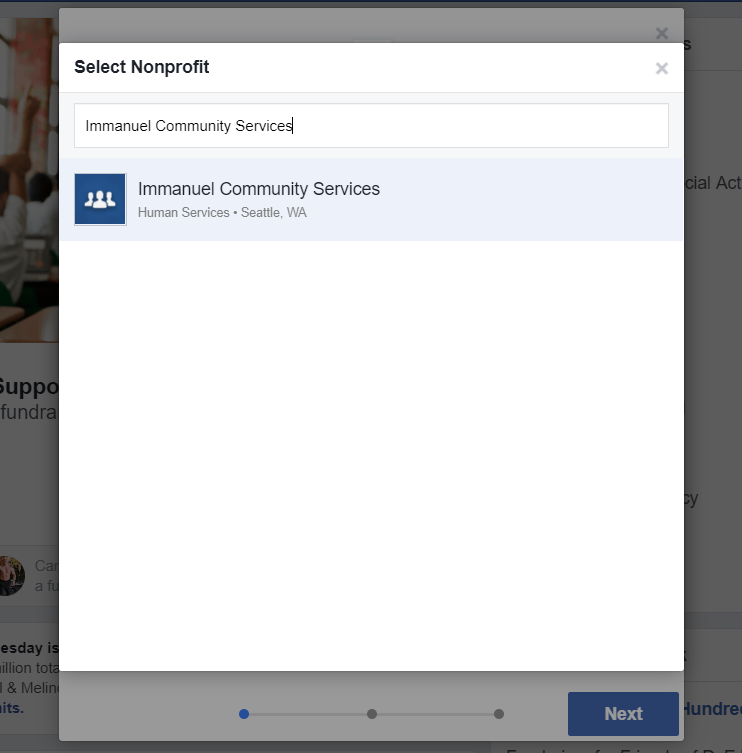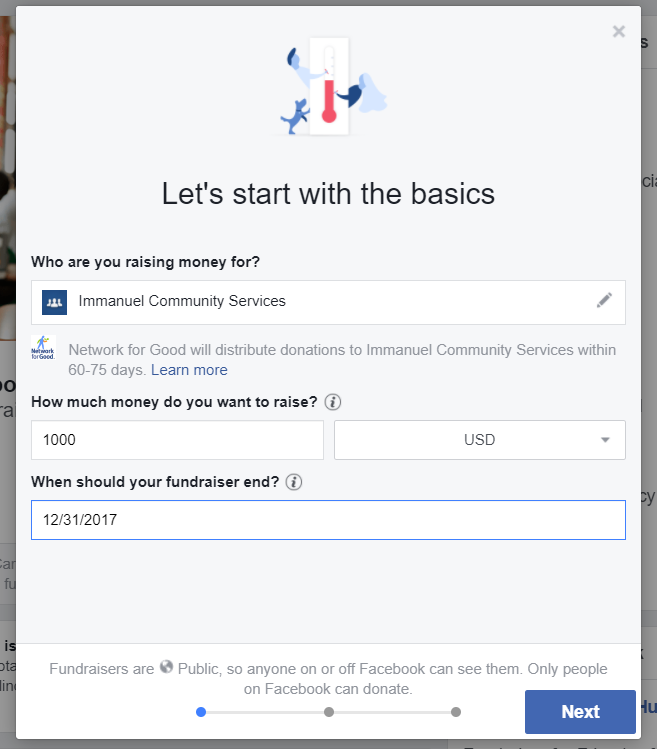Keith’s Story


I love to cook for people. I love the instant feedback, the ability to share that I care, and that look on people’s faces when they close their eyes and think “mmm, that’s good”. So it was natural that when I wanted to start volunteering with ICS, I combined one of my favorite things to do with volunteering – by cooking dinner monthly for the men in recovery!
My husband and I had done this for over a year back in 2017-2018, and I loved the feeling of making something nice that people would love – ribs, meatloaf, bratwurst. And I loved when I got my friends and family to come join us, and adding their faves – homemade mac and cheese, greens, bread from scratch. But more than that, I loved being able to get to know the guys, and for my friends to get to know them too. We got to be there from the first month that some men showed up, and were there when they moved into permanent housing. We were able to share conversations about how life can suck. We shared dreams, shared regrets, and looked to the future. I was able to understand life beyond my own, beyond the lives of my friends, and I am so grateful for that. I got to make a quilt for graduation, and when one of the guys picked it up to keep, it felt so awesome.
We took a hiatus for about a year after we got a kiddo. BUT! Last month, we started it up again. We brought some faves – ribs, greens and sausages, homemade bread, and a crumble… though that didn’t turn out super great. 🙂 This was the first time we got to meet a lot of the new guys in the program, so it was weird to go back to not knowing people as well as we once did – everyone had graduated since we last cooked! But I’m excited to keep going monthly so that we can get to know them, and they can get to know us and our kid.
I would highly encourage finding a way to volunteer at ICS. Think about something you love to do; you can share that with the guests at ICS! From cooking, to painting, to reading, to … whatever! You have a gift that someone would love for you to share with them. Talk with me, a board member, or our Executive Director to let us know you want to share your time or skills and we’ll make it happen!
Kevin Johnsen
Board Member
The success of our program can be seen in the example of a recent graduate of the program who struggled with alcoholism for decades. It ruined his family life and his business life. He had failed at prior treatment programs multiple times and eventually found his way to Matt Talbot. He moved into our Recovery Program Shelter so he would have a safe, clean place to live while he attended Matt Talbot Center for intensive outpatient treatment. Because he had a safe place off the streets, a bed and food on the table, he didn’t have to worry about how he would survive but could focus all of his attention and work on his recovery.
It wasn’t an easy path and after a few months, he relapsed but he immediately decided to get back on track. He returned to inpatient treatment and when he completed treatment, he returned to ICS…and the rest as they say is history! When he started regaining his health and embraced the tools needed to maintain recovery, he transitioned into the second phase of his program and returned to school, pursuing a degree in computer science through a local community college. This career path now promises him a middle-class supporting wage.
Then one day, while on campus, he unexpectedly ran into one of his daughters he had not seen in over a decade. She was so impressed with his complete change of being and sobriety, they have been meeting weekly getting to know one another again. She also brought one of her brothers along who has started reuniting with him as well. The overwhelming gratitude this individual feels was recently expressed in his comment at his phase 2 graduation when he stated, “someone pinch me because this has to be a dream come true.”
Step 1: Click here to start a fundraiser.
Step 2: Click the blue “Raise Money” bar and when a window pops up, click the box that says “Get Started”.

Step 3: Search for Immanuel Community Services.

Step 4: Once you have chosen ICS, you will be able to enter your information.

Step 5: Customize your fundraiser!
We’d love for you to add personality to your text and description. Here are the details we want to make sure you include:
Your goal amount is $1,000.
Thank you for your help and support!
A huge thank you to everyone who was a part of our 8th Annual ICS Fall Benefit Breakfast! The celebration was a tremendous success and we felt blessed to share with you all what makes ICS’ Programs truly unique. Thanks to your support, we raised over $52,000!
In particular, a huge thank you to Joe McDermott, our Keynote Speaker, for gracing us with his words of wisdom in the midst of this current homeless crisis. He also weighed in on the theme of this year’s Breakfast, “A Season of New Hope.” While acknowledging the seriousness of the homeless crisis, Joe remains “optimistic that we will find a time when people in need will be housed, [a time when] they will have access to healthy and nutritious food” as well as a fundamental sense of “safety and security.” Immanuel Community Services, as Joe put it in his talk, plays “a key part” in the work being done for those who are without home or shelter. In the face of this crisis, we pride ourselves on our ability to bring hope and optimism to those who need it most.
Thank you being part of this important work.
In the wake of the presidential inauguration, the city must come to together to support hope, dignity, and community
By Clayton Aldern – January 20, 2017
SEATTLE, Wash. – For low-income housing and homelessness advocates, Inauguration Day is a day of uncertainty. With an incoming administration that’s had very little to say on homelessness and a Housing and Urban Development nominee with no experience in housing policy, federal signals are currently mystifying at best. In Seattle, advocates and service providers are preparing for the worst.
“None of us know what to expect,” says Kira Zylstra, assistant director of All Home, a Seattle-based housing task force that coordinates King County’s response to homelessness. In Seattle, an early 2016 count showed the homeless population had increased 19 percent over the previous year – and 32 percent over the previous two.
John Fox, director and coordinator of the low-income and homeless advocacy organization Seattle Displacement Coalition, echoes Zylstra’s uncertainty. “None of us really know where this is going to go,” he says. “The state of affairs is not good in Seattle, and the election of Trump is only cause for concern.”
But while he refers to the times ahead as “unknown territory,” Fox is quick to note “the systems that are in place to deliver these programs have been in place for a long time.”
Not counting on increases or innovations in federal support, Zylstra and Fox suggest that responses to homelessness by state, local, and community organizations could take on new importance this year.
One such organization is Immanuel Community Services (ICS), a community-based social services provider in Seattle’s Cascade neighborhood. ICS offers a suite of programs targeting the effects of poverty, hunger, homelessness, and addiction – including its flagship Hygiene Center, which offers a space for people experiencing homelessness to shower and wash their clothes on weekdays.
“We provide a barrier-free environment and meet every individual where they are at,” says Victor De Los Santos, executive director of ICS. “Very few of our clients have access to medical care, so our case manager brings services directly to them – including hepatitis C testing, a dental van, nurses, and soon, HIV testing.”
ICS also offers a community lunch on the last Sunday of every month, as well as a food bank on the last two Mondays, with support from the Immanuel Lutheran Church congregation, NW Harvest, Food Lifeline, and the Food Resource Network Federation. “At ICS, we really focus on providing an environment in which our clients feel safe and know that they won’t be judged,” says De Los Santos.
For ICS, shifting political power dynamics mean that community does indeed need to fill the gap. But preparing for the worst doesn’t preclude hope.
Linda Mitchell, communications director at Mary’s Place, a day center for homeless women and children, says the “recipe for success” is to be found in partnership. “We know that we can’t bring all of our homeless families inside alone,” she says. “We need the city, county, and state; we need the business and faith communities. We need developers and real-estate professionals to share buildings, professionals to share skills and wisdom, volunteers to share time – our entire community to bring home and help to solve this community issue.”
Groups like ICS and Mary’s Place offer much-needed services in a region where the numbers in need are only expected to grow. “Waiting lists for public housing are years long,” says Fox. “We’ve got some of the highest housing costs in the country. We can only expect homelessness to continue to accelerate here.”
In partnership with the Matt Talbot Center, ICS operates a recovery program and shelter for men who are homeless, many as a result of their addictions. The program currently supports up to 14 men – but if groups like ICS are to continue or expand their services, they’ll need more support from individual community members. For De Los Santos, though, that’s a good thing: It means fostering an understanding that individuals have the power to support community.
“There’s an affordable housing crisis,” says Zylstra. “We have to continue the fight at the state and local level.” Zylstra also cites advocacy partners like the Washington Low Income Housing Alliance, the Seattle/King County Coalition on Homelessness, and the Housing Development Consortium.
“It’s not business as usual,” says Fox. “The need’s going to grow.” And as it does, the people already doing the work are turning inward and doubling down.
“It’s all about the needs of the community as they define it as people who are out there seeking housing,” says Zylstra. “Our federal partners alone won’t be able to understand or identify the solutions without us, and we can’t identify the solutions without engaging people who are most impacted by what those solutions might be. That’s what dignity means to us.”
“As a community we need to focus on making sure that every human has their needs met,” says De Los Santos. “Everyone needs to step up and make sure that this happens.”
Recent Comments